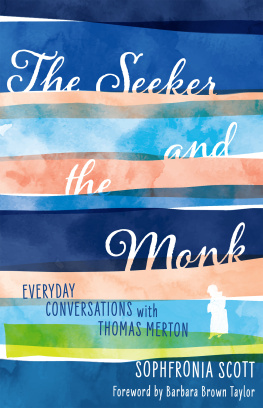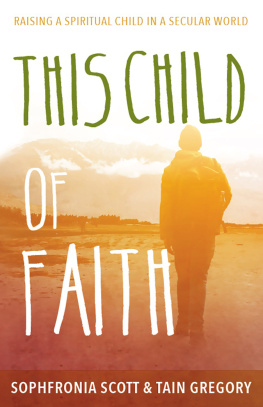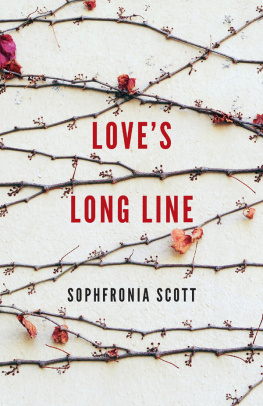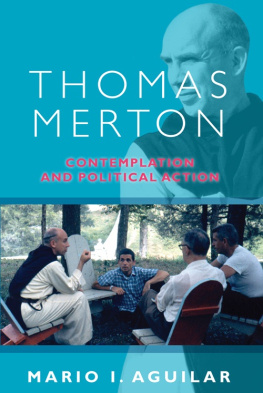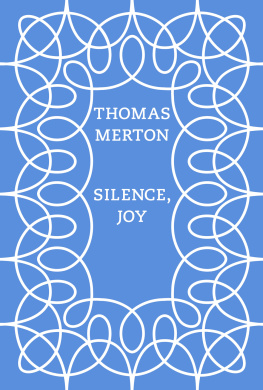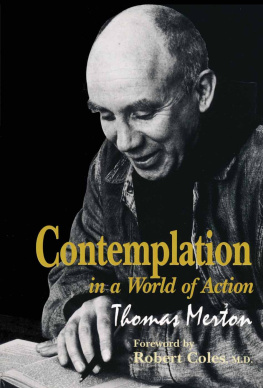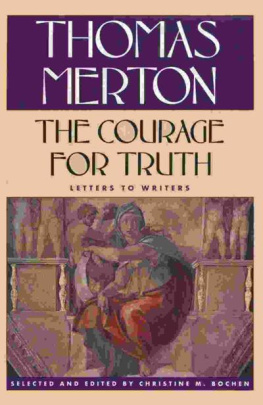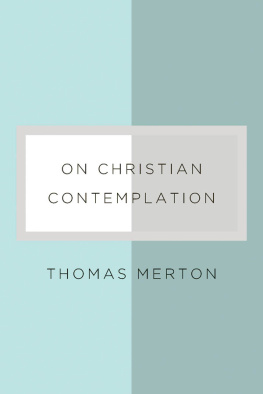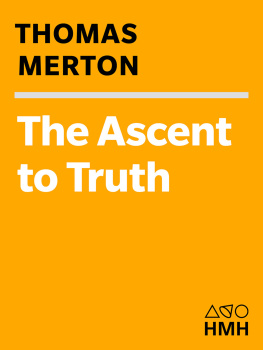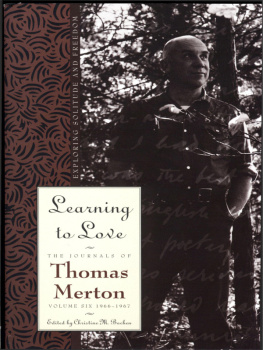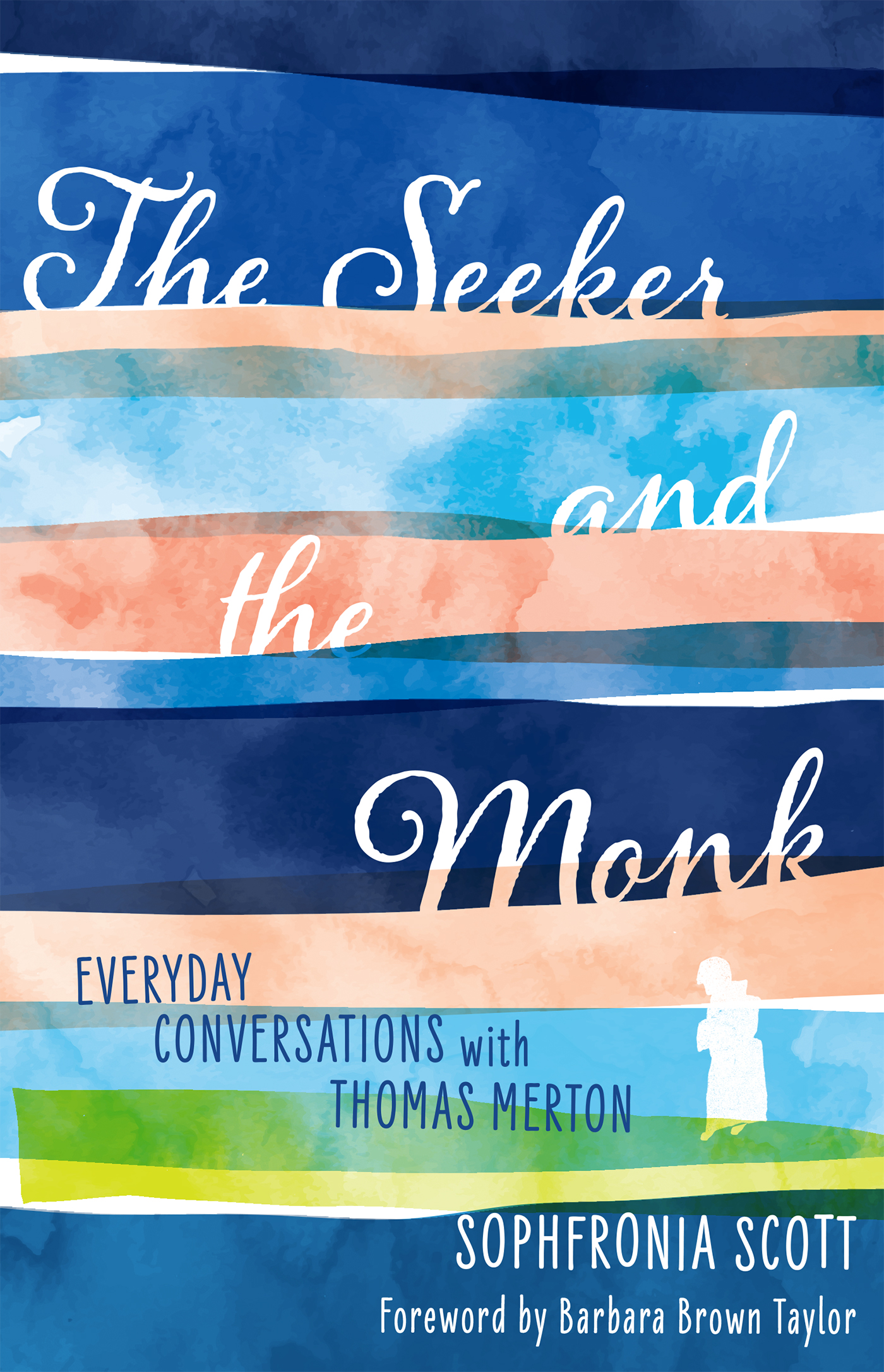
Praise for The Seeker and the Monk
This book is a marvelous journey that teaches us how to walk into the life of another while opening up new paths into our own life. The unlikely companionship of this African American woman writer and a white Catholic monk is one that few readers of this book will ever forget.
Dr. Willie James Jennings, associate professor of theology and Africana studies at Yale Divinity School; author of After Whiteness: An Education in Belonging
If you know Thomas Merton, you now must know Sophfronia Scott. In remarkable and marvelous ways, she invites us to complete our seeing of Mertonand also to see ourselvesby completing his humble seeing of a forgiving God.
Patricia Raybon, author of My First White Friend and I Told The Mountain to Move
The beauty of this book is that... [Sophfronia Scott and Thomas Mertons] intimate conversations open outward to include anyone listening in, confident that what is deeply true about any of us is deeply true about all of us. Both Sophfronia Scott and Thomas Merton believe we belong to each other, and that faith frees us to speak frankly about our struggles with faith.
Barbara Brown Taylor, New York Times bestselling author of An Altar in the World, Learning to Walk in the Dark, Holy Envy, and other books
An exquisitely rendered account of the love affair between an incandescent, twentieth-century flawed monk and a probing, twenty-first-century Black writer that brims with relevance and astonishing revelations. This book is a testament that if you seek, you indeed shall find.
Father Edward L. Beck, C.P., author and CNN commentator
Sitting down with The Seeker and the Monk made me feel like I was overhearing a delightful conversation between two brilliant friends.
Carol Howard Merritt, pastor of Bedford Presbyterian Church and author of Healing Spiritual Wounds
A compelling, imaginative book to assist the world as we grapple with issues of race, racism, belonging, faith, hope, and love.
Rev. Nancy Lynne Westfield, PhD, director, Wabash Center for Teaching and Learning in Theology and Religion
The Seeker and the Monk
The Seeker and the Monk
Everyday Conversations with Thomas Merton
Sophfronia Scott
Foreword by Barbara Brown Taylor
Broadleaf Books
MINNEAPOLIS
THE SEEKER AND THE MONK
Everyday Conversations with Thomas Merton
Copyright 2021 Sophfronia Scott. Printed by Broadleaf Books, an imprint of 1517 Media. All rights reserved. Except for brief quotations in critical articles or reviews, no part of this book may be reproduced in any manner without prior written permission from the publisher. Email or write to Permissions, Broadleaf Books, PO Box 1209, Minneapolis, MN 55440-1209.
Excerpt(s) from CONJECTURES OF A GUILTY BYSTANDER by Thomas Merton, copyright 1965, 1966 by The Abbey of Gethsemani. Used by permission of Doubleday, an imprint of the Knopf Doubleday Publishing Group, a division of Penguin Random House LLC. All rights reserved.
Excerpts from THE SEVEN STOREY MOUNTAIN by Thomas Merton. Copyright 1948 by Houghton Mifflin Harcourt Publishing Company and renewed 1976 by the Trustees of The Merton Legacy Trust, Reprinted by permission of Houghton Mifflin Harcourt Publishing Company. All rights reserved.
Excerpts from Thomas Mertons journals include the following:
RUN TO THE MOUNTAIN: THE JOURNALS OF THOMAS MERTON, VOLUME ONE 19391941. Copyright 1995 by The Merton Legacy Trust.
ENTERING THE SILENCE: THE JOURNALS OF THOMAS MERTON, VOLUME TWO 19411952 edited by Jonathan Montaldo. Copyright (c) 1995 by The Merton Legacy Trust.
A SEARCH FOR SOLITUDE: THE JOURNALS OF THOMAS MERTON, VOLUME THREE 19521960 edited by Lawrence S. Cunningham. Copyright 1996 by The Merton Legacy Trust.
TURNING TOWARD THE WORLD: THE JOURNALS OF THOMAS MERTON, VOLUME FOUR 19601963 edited by Victor A. Kramer. Copyright 1996 by The Merton Legacy Trust.
DANCING IN THE WATER OF LIFE: THE JOURNALS OF THOMAS MERTON, VOLUME FIVE 19631965 edited by Robert E. Daggy. Copyright 1997 The Merton Legacy Trust.
LEARNING TO LOVE: THE JOURNALS OF THOMAS MERTON, VOLUME SIX 19661967 edited by Christine Bochen. Copyright 1997 by The Merton Legacy Trust.
THE OTHER SIDE OF THE MOUNTAIN: THE JOURNALS OF THOMAS MERTON, VOLUME SEVEN 19671968 edited by Patrick Hart. Copyright 1998 by The Merton Legacy Trust.
Used by permission of HarperCollins Publishers.
All Scripture quotations, unless otherwise indicated, are from the New Revised Standard Version Bible, copyright 1989 National Council of the Churches of Christ in the United States of America. Used by permission. All rights reserved worldwide.
References to internet websites (URLs) were accurate at the time of writing. Neither the author nor 1517 Media is responsible for URLs that may have expired or changed since the manuscript was prepared.
Cover art: Brad Norr
Cover design: Brad Norr
Print ISBN: 978-1-5064-6496-1
eBook ISBN: 978-1-5064-6497-8
In loving memory of
Katherine Kjellgren
Your voice forever with me
Contents
Anyone who has practiced faith knows there is both an inside and an outside to it. To come inside after a long time outside is to find community, solace, and shelter. Depending on what kind of faith it is, a comforting blanket of certainty may be in the welcome bagalong with a clear set of expectations about how insiders behave.
After a while, however, some of us find the community too chatty or the enclosure too small. Inside doesnt look the same from the inside as it did from the outside. Perhaps we just want to stretch our legs and be alone outside for a while, for reasons as mysterious as the ones that led us to come inside in the first place.
Thomas Merton knew all about that. So does Sophfronia Scott, who met Merton in his journals more than forty years after his death. Like him, she is gripped by the sacred. Like him, she writes divinely about being human. Like him, she knows the push and pull of faith, the view from both sides of the enclosure. Small wonder, then, that her sense of connection to Merton was instant. Hearing his work read out loud for the first time, she felt something open up inside her. It felt immense and small at the same time, she writes in the pages that follow, because it felt like one word: Yes. Yes, I thought. Thats exactly it.
You are likely to think the same thing as you listen to the conversations she strikes up with him in this book, as full of give-and-take as if he were right beside her. There is none of the usual deference to a famous teacher. There is nothing timid in the dialogues she has with Merton about possessions, prayer, ambition, and social justice. When she talks with him about racism, it is as if they are sitting on his porch with yesterdays newspaper spread between them. When she speaks with him about death, it is with the gravity of someone who knows she is the same age now as Merton was when he died.
It is easy to forget that these are conversations between a monk and a seeker. When Sophfronia calls him Thomas and offers him loving correction, it begins to sound more like a holy heart-to-heart that spans gender, race, vocation, history, and religious tradition. Spanning these differences may sound less grand to you than transcending them, but the distinctions between this particular monk and this particular seeker are too precious to be eclipsed. They prove that like-spirited people need not be alike. They show how people coming at faith from separate directions can still reach for each others hands when they make a run for it. Whether they are on their ways in or out of their comfort zones, they recognize each other as kin.
Next page
